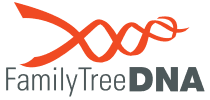The Police and Other Risks With Sharing Your DNA Data

Direct-to-consumer DNA testing has become enormously popular in the US and around the world.
Established brands like 23andMe and AncestryDNA have made it easy and affordable to learn more about your genetic makeup and as a result, we’ve seen a huge surge in the popularity of these services in recent years.
As they become more widely advertised, Over 26 million Americans have decided to willfully hand over their DNA to these private companies.
Certain researchers have actually been able to map out the relationships of all US citizens with this information alone.
Many of us, however curious we might be, have avoided these services because we don’t feel comfortable handing over our DNA.
Putting your unique DNA into some corporation’s database might not be the best idea if you’re someone who’s concerned about your privacy, especially since there’s no real telling what could happen to it, whether now or much further in the future.
If you happen to be one of the nearly 30 million people who’ve given their data up in the pursuit of discovery, there’s a good chance it’s now being used to assist the police with their investigations. While this might not sound like such a bad thing, using the biological data of millions of people without their permission or knowledge isn’t exactly honest practice.
Federal and state police officers have been trying for years to access the databases of DNA-matching companies. Most mention in their policies that this isn’t something they’ll ever comply with, and this has been the case up until recently.
A judge in Florida awarded a search warrant to aid in a local police investigation. This isn’t something that’s ever been allowed before and is pretty worrying for what this one decision might lead to. None of the people who are signed up to these services were informed that their DNA could be used for this purpose.
Hacking
Hacking is becoming more of a problem each year as major corporations and government institutions are being held for ransom.
Though not necessarily the most popular target, DNA companies hold a lot of personal and valuable information that can sometimes be stolen quite easily due to failures from the company to secure their data.
The way some companies handle the loss of information can often be just as bad as how poorly they secure it. Not all companies can face the music and will do their best to hold off on letting customers know about the breach.
Privacy Policies
A company can always change its privacy policy and so long as its legal, that’s fine. You can always walk away from them when you disagree with their methods.
The problem with DNA testing is that while you might want to walk away from the company, it’s effectively too late once you’ve already submitted your DNA to the database, especially if you consented to have your data sold onto non-profits and third-party researchers.
As long as the company states any changes to how they handle the DNA of their customers in their privacy policy, they’re not doing anything illegal. You just might be required to give consent again.
Profit From Third-Parties
All providers, including the industry leaders, will sell your data to third party researchers.
You only need to opt-out of this to avoid it happening to your data but as we all know, companies don’t exactly make opting out straightforward when there’s a chance for profit involved.
Though some companies report that most of their users choose to share their data, this isn’t necessarily that they’re all right with it.
There’s a good chance they opted in without realizing it. Some providers will allow you to consent to your DNA being shared to contribute to the research of specific diseases.







